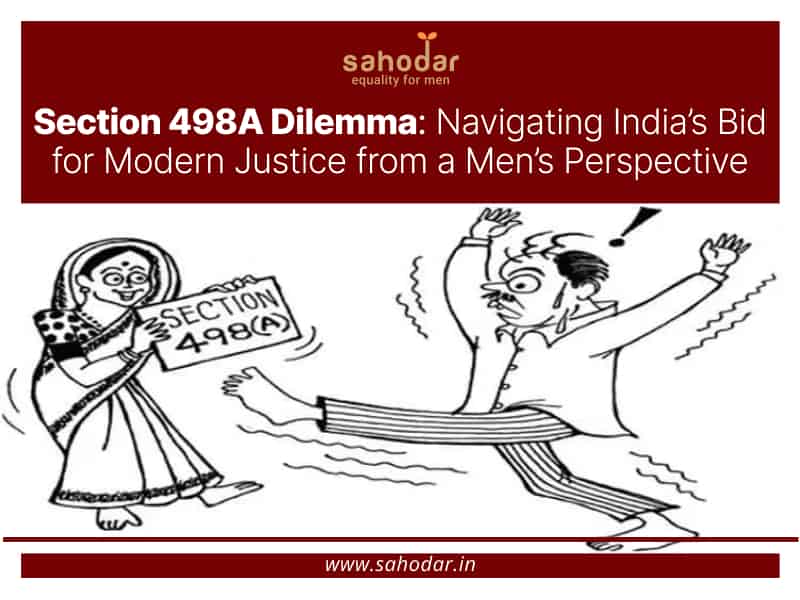Section 498A of the Indian Penal Code was introduced, criminalizing cruelty towards married women by their spouses or in-laws. While aimed at providing a shield of protection for women, this legal provision has also been criticized for its potential misuse, often leading to the unjust persecution of innocent men. As we delve into the complexities of Section 498A, it’s essential to examine the balance between women’s safety and men’s rights within the framework of modern justice.
Understanding Section 498A
Section 498A was incorporated into the Indian Penal Code in 1983 to address the pervasive issue of cruelty against married women. It defines cruelty as any wilful conduct that is likely to drive a woman to suicide or cause her grave injury, both mentally and physically, by her husband or his relatives. The provision allows for the immediate arrest of the accused upon receiving a complaint from the victim or her relatives, without the need for preliminary investigation. While undoubtedly a progressive step towards protecting women from domestic abuse, Section 498A has often come under scrutiny for its misuse, with cases of false accusations and wrongful arrests on the rise.
The Misuse of Section 498A
One of the primary concerns surrounding Section 498A is its potential for misuse as a tool for vengeance or extortion in marital disputes. Instances abound where disgruntled wives or their families have filed false cases under this provision, leading to the wrongful arrest and harassment of innocent men and their families. The mere threat of invoking Section 498A is often enough to coerce husbands into complying with unjust demands or relinquishing their rights in divorce proceedings. This misuse not only undermines the credibility of the legal system but also perpetuates an environment of distrust and animosity between spouses.
The Fallout for Men
For men falsely accused under Section 498A, the repercussions extend far beyond legal ramifications. The social stigma attached to being labeled as an abuser can tarnish one’s reputation irreparably, leading to ostracization from family and society at large. The emotional toll of being branded a perpetrator of domestic violence, especially when innocent, can be devastating, causing irreparable damage to one’s mental well-being. Moreover, the financial burden of legal fees and the loss of livelihood due to incarceration further compound the woes of men ensnared in false cases under Section 498A.
Striking a Balance
While acknowledging the imperative of protecting women from domestic abuse, it’s crucial to strike a balance that safeguards men’s rights against wrongful accusations. Reforms within the legal framework, such as stringent penalties for false accusers and mandatory mediation in marital disputes, can help mitigate the misuse of Section 498A. Additionally, promoting awareness about the legal implications of filing false cases and encouraging alternate dispute resolution mechanisms can foster a more equitable approach to resolving marital conflicts.
Empowering Men
In the pursuit of gender equality, it’s essential to recognize that men too can be victims of domestic violence and false accusations. Empowering men to speak up about their experiences and seek recourse for injustices perpetrated against them is integral to fostering a society based on principles of fairness and justice. Support networks and helplines catering specifically to men facing domestic abuse or false cases can serve as lifelines, offering them the assistance and solidarity they need to navigate through turbulent times.
Conclusion
Section 498A stands at the crossroads of India’s quest for modern justice and its commitment to safeguarding women’s rights. While undeniably a vital tool in combating domestic abuse, its misuse poses a significant challenge to the principles of fairness and equity enshrined in the Indian legal system. As we tread the delicate balance between women’s safety and men’s rights, it’s imperative to undertake measures that address the root causes of marital discord while ensuring that innocent individuals are not unjustly persecuted. Only through a concerted effort to reform and refine our legal mechanisms can we truly uphold the sanctity of marriage while fostering a society that is just, compassionate, and equitable for all.

